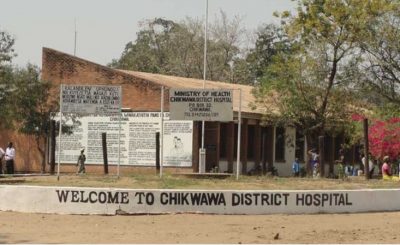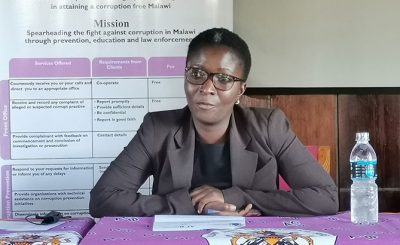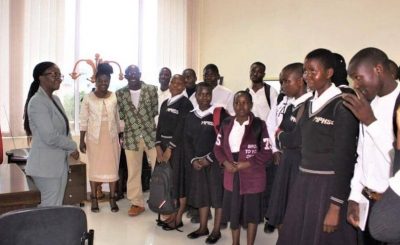Girls under the age of 18 in some border districts of the country are being affected by what is described as secretive cross-border marriage exploitation. Sadly, government is not aware of the issue, which is slowly shaping into another form of child trafficking racket as Shadreck Sindiza discovers.
What happens when people believe they have discovered new ways of doing wrong? What might happen when authorities seem not to be aware of what has been discovered?
In Mangochi for instance, apart from people discovering illegal ways of digging precious stones such as gold, they have also discovered new ways of marrying girls under the legal marriage of 18.
There is a growing cancer of typical cross-border marriage exploitation that has just hatched out of its shell. An alarming number of Malawian girls under the age of 18 are reported to have been trafficked to Mozambique.
These minors are taken across the border by either Malawian or Mozambican human traffickers, sadly for marriage or other terrifying things that go unreported.
We spoke to group village headman Makanjira, who was overwhelmed by the spate of these cases. The traditional leader asked for help to halt the terror on humanity in his area to save the lives of little girls.
“Yes it is true, as you know we border with Mozambique. Girls from here are taken to Mozambique for marriage. The problem is that it is difficult to intervene just within my capacity as a chief, but this has been a problem for a long time. However it has been left to the right people to handle, as you know getting the government to intervene is a long process, so we are still waiting for the day it will get sorted,” he said.
According to investigations by our reporter, those involved in the act have devised systematic ways of beating the legal system, which does not allow marriage of any girl below the age of 18.
Shahida (not her real name) from traditional Makanjira’s area is a victim of what is described as cross-border marriage exploitation.
At the age of sixteen she was forced to marry a Mozambican chap and her family which is bearing the cruelty of poverty, received K20,000 from the suitor.
“A man from Mozambique came and asked me to marry him. I agreed and went to stay in Mozambique. I did all the chores that were required of me, like farming. When he got me pregnant, he started ill-treating me, I decided to come back home and reported the issue to the village chief who assisted me accordingly,” she said.
But how did the alleged husband to Shahida manage to cross the border with the little girl into Mozambique?
Shahida lamented that from Makanjira they used shortcut routes with the help of bicycle taxi operators, locally known as kabanza. At the Mozambican border, those manning the gates were bribed.
“We used shortcuts, through the chiwesa road where people could not see us. When we got at the border, he spoke to the officials there in Portuguese and gave them lots of money which was in their currency, I did not understand what they talked about because by then I was not fluent with the language,” Shahida lamented.
Mangochi District Social Officer, Macloud Mphande expressed knowledge on the cross-border child marriage pandemonium.
“Actually, I am aware of two cases, two men married girls and took them to Mozambique where they are currently staying. As of now we are raising awareness to the communities on the same,” said Mphande.
Away from Makanjira, YFM also visited Mchinji district. Just like Makanjira, Mchinji district shares boundaries with Mozambique and Zambia.
In this tobacco growing district, Group Village Headman (GVH) Mbachundu from Traditional Authority Zulu acknowledged that cross border marriage exploitation is also happening in his area.
“There is a big challenge when it comes to issues of early marriage here, there are some men who are very tough who after proposing marriage to a girl, ran away with her. Mainly close to the border of Mozambique,” he said.
Going around the village, we also unearthed the brutal assertion that if one is not taking a young girl into either Mozambique or Zambia, then he defiles her and escapes into any of these neighboring countries.
Chrissy-real name withheld- is nursing her baby at the age of 15. She curses the day she received a sum of One thousand Malawi kwacha from a 30 year old man, who defiled her when she was just 14 years old.
“He lured me with money to follow him which I did. Upon arriving to the place he told me to lay down without explaining what will happen. I tried all I could to scream for help but He used his hands to close my mouth so that I will not scream,” Chrissy said.
She bemoaned that the man who defiled and made her pregnant is living freely in Zambia, where he fled to.
“During the time I was married to him, he used to beat me up, he forced me to go farm at night. As of now he is working in Zambia. I did not know he had ran away, one day I went to the farm and found no one at home, thus when it hit me… I had been left alone,” she said.
However, government through the ministry of Gender, Children, Disability and Social Welfare was taken unawares by this disturbing issue, which is silently becoming a major down puller in the fight against child marriage and human trafficking.
Director of Child Affairs in the ministry, McKnight Kalanda said the issue needs further probing.
“The child care protection and justice act, empowers the citizens to report any case of child abuse to social welfare office in their area, chiefs or the police otherwise If we condone such type of behaviors it will hit us hard one day. Today it might appear as a small issue but tomorrow it will turn into something big, it could either be a case of abduction or child trafficking. As a ministry we are going to investigate,” he said.
The Malawi police service joins in the song, vowing to check into the matter. National Police Publicist, James Kadadzera, described the development as unfortunate. However, he urged Malawians to report any suspicious behavior to police.
“We are aware of child marriages occurring in Malawi but we are encouraging the general public to partner with us so that we can deal with all challenges down pulling efforts towards the fight against child marriages. Let me assure you that as the police we are going to take up the issues so that we can find ways of dealing with it,” Kadadzera said.
The story of this magnitude does not only end with the chiefs and government, rather it stretches forth to experts and child rights campaigners.
Executive Director of Eye of the Child, Maxwell Matewere, revealed that recently the governments of Malawi and Mozambique instituted a cross-border forum which will ensure that no one involved in such crimes escapes punishment.
“Malawians should be aware that we have laws that prohibits any form of arranged of forced marriage and most importantly to prevent cases of trafficking. Those laws are quite strong and they give government mandate with neighboring countries to investigate cases of trafficking through what is now available known as ‘cross-border forum’ whereby the two countries established to conduct joint case investigations,” he said.
Executive Director of Youth Net and Counseling (YONECO), MacBain Mkandawire, who is overseeing a project dubbed “Marriage; No Child’s Play” in Mangochi and Mchinji, emphasized that investigations into the vicious trafficking of young girls need to be launched.
“The law does not know the border, one thing that I want to emphasize is that once those things happen they should report because at that level that is trafficking so once we get to that we can engage the government of Mozambique. Using late Bingu’s word we will smoke them out,” Mkandawire said.
“Every day around the world, more than twenty thousand children are getting married illegally”, according to a 2017 analysis report on child marriages by the World Bank and Save the children.
Sadly, a 2016 – 2017 Malawi Demographic Health Survey report disclosed that Malawi is one of many countries facing the future with 42 in 100 girls getting married before turning 18.
Cross-border marriage exploitation is like a ticking bomb that will gradually cause unimaginable damage to the lives of many Malawian young girls, if not diffused in time.





